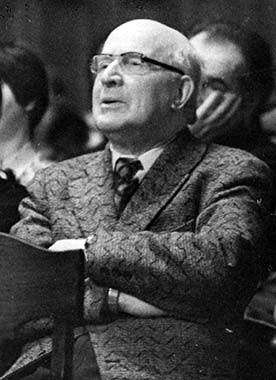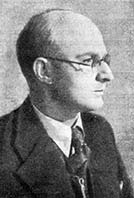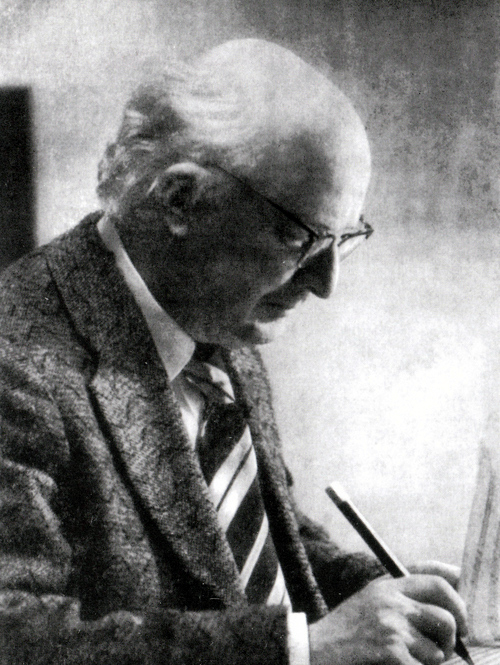ARAPOV Boris
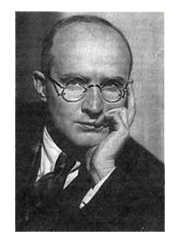 Boris Alexandrovich Arapov (1905–1992) was an outstanding Russian composer, teacher and mentor of several generations of composers. His students include such names as Gennady Banschikov, Leonid Desyatnikov, Alexander Knaifel and Sergei Slonimsky. He taught at the Leningrad (St. Petersburg) Conservatoire since 1930 (since 1940 professor), and from 1974 until the end of his life headed the composition department.
Boris Alexandrovich Arapov (1905–1992) was an outstanding Russian composer, teacher and mentor of several generations of composers. His students include such names as Gennady Banschikov, Leonid Desyatnikov, Alexander Knaifel and Sergei Slonimsky. He taught at the Leningrad (St. Petersburg) Conservatoire since 1930 (since 1940 professor), and from 1974 until the end of his life headed the composition department.
Arapov is the author of three operas, a ballet, seven symphonies, numerous symphonic and chamber instrumental works, vocal and piano music.
Boris Arapov was born on September 12, 1905. In 1930, he graduated from the Leningrad Conservatoire with a degree in composition from Professor V. Shcherbachev’s class. The list of works by Arapov is extensive. However, his plans matured and were implemented rather slowly. Having in his arsenal all the variety of techniques introduced into the music by the post-war European avant-garde, Arapov each time chose the means to create a new musical material guided by an impeccable sense of proportion and expediency.
The Arapov composer, who bore the responsibility of the head of the school, always retained his strive for renewal. Already beyond his 60th birthday, Arapov created a nonconformist, linguistically exquisite chamber music and stage diptych: the opera novel “The Rain” by S. Maugham (1967) and the two-act ballet “Portrait of Dorian Gray” by O. Wilde (1971). A kind of staging of symphonic action in three concerts of that time — the Violin Concerto (1964), the Concerto for the Great Symphony Orchestra (1969) and the Concerto for Violin, Piano and Drums with Chamber Orchestra in memory of I.F. Stravinsky (1973) — also became an important feature of the composer's style.
His late compositions — a vocal cycle and a symphony — are somewhat special. They were created by the composer after his 80th birthday. These are the creations of an outstanding master, who is fully equipped and continues to compose in a systematic and concentrated manner - but this is also the music of a man who has lived a long and eventful life. A man of wisdom, who is able to look at the age and people both with sympathy and some aloofness. His gaze comprehends, sifts away all external, temporary things and still keeps warmth, attention and understanding. Being Dmitry Shostakovich's peer, at the turn of the 1980s-1990s he is amazingly loyal to the pathos of novelty that animated the brilliant plethora of avant-garde composers in the 1920s and 1930s — and at the same time is deeply rooted in the millennia-old musical and literary European tradition. Lyrical and philosophical reflection in the vocal cycle “Soul and Body” to the verses of N. Gumilev and O. Mandelstam and the multi-faceted instrumental drama of the Seventh Symphony find a kind of common denominator in the “Revelation of John the Evangelist”, a score that is both epic and acutely lyrical, putting in line with the universal scale of the Apocalypse — the scale of intense personal experience. The breath of personality “on the glasses of eternity”, petrified before the universal feat of Judea, woe as a “reliable shield of the soul” — these poetic images from the texts included in the vocal cycle, become a measure for such a universal scale. Here one can hear our time — the time of great history, history of humans.
The experience of mankind — it is also a personal experience; always fresh and acute (for each time is the first time!) reaction to the world and its events - is the deepest and oldest tradition of the world; singing wisdom and light are inseparable from the momentary struggle against darkness, as the soul in the earthly world is inseparable from the body — this or something very similar composer Boris Arapov tells us with its latest works, his artistic last will.
Works by Arapov available for sale:

|
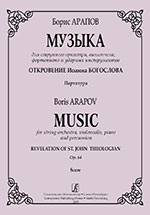
|
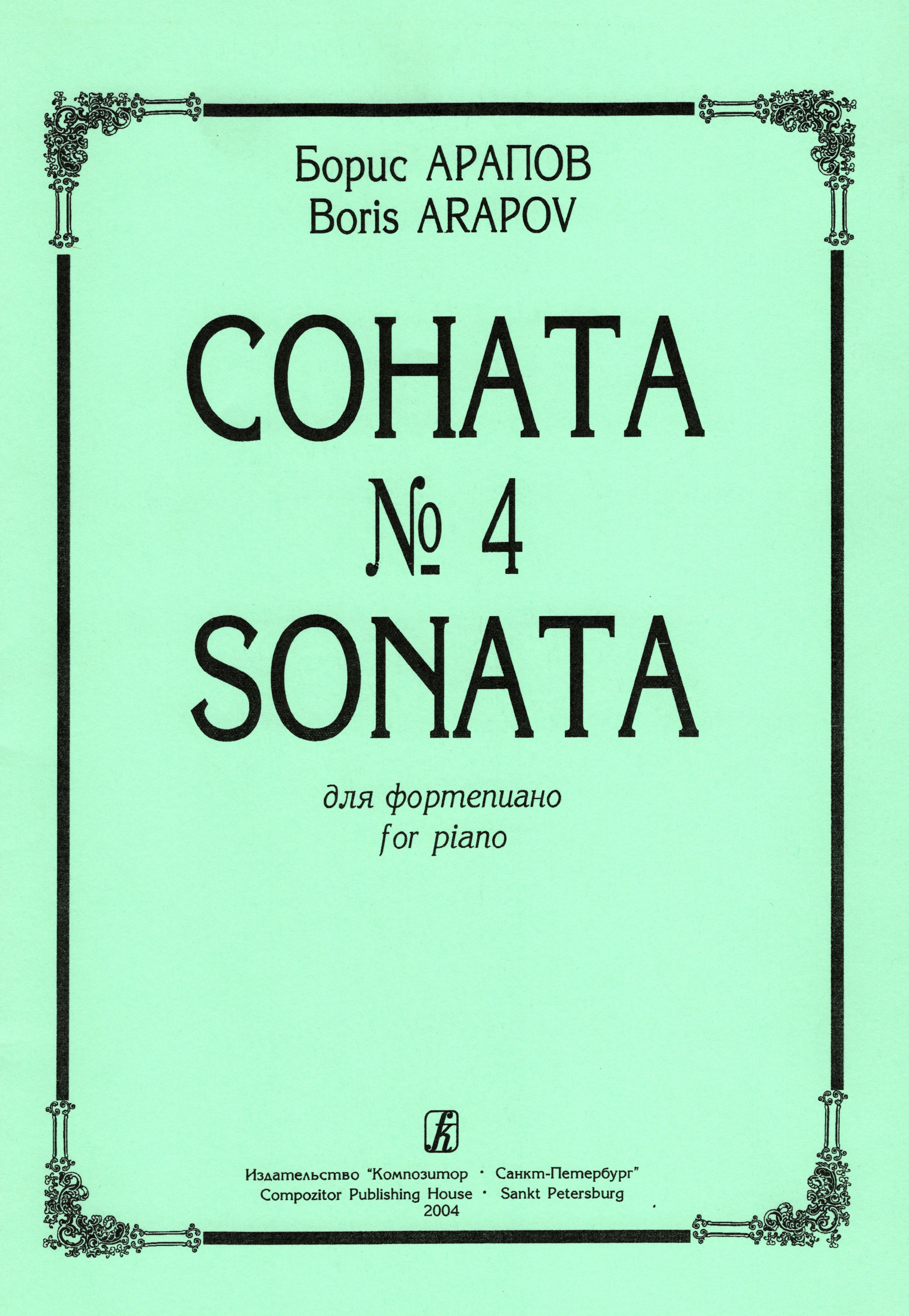
|
|
Soul and Body |
Music for string orchestra, |
Sonata No 4 |
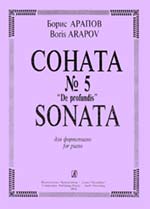
|
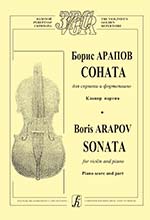
|
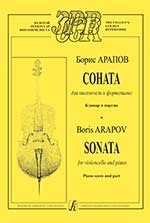
|
|
Sonata № 5. “De Profundis” |
Sonata for violin and piano |
Sonata for cello and piano |

|

|
|
Merry Feast. Table song |
Autumn |
Works by Arapov available for hire
Works by Arapov on CD
